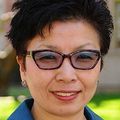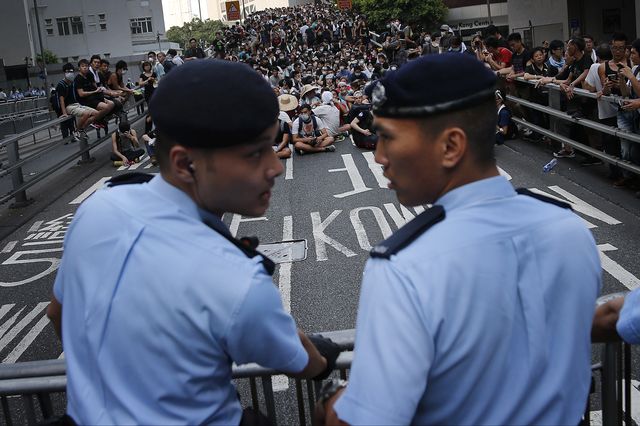
C. Cindy Fan is a professor of geography and interim vice provost for international studies at UCLA. She is the author of “China on the Move.” This op-ed appeared Sept. 29 in The New York Times Room for Debate blog.
Hong Kong has always had a love-hate relationship with China. For example, China’s disputes with Japan over the Senkaku/Diaoyu Islands often evoke nationalist emotions among Hong Kong Chinese, and have triggered street demonstrations and conflicts in the East China Sea. On the other hand, concerns over being governed by a Communist regime resulted in mass migrations to North America and Australia, especially during the years subsequent to the 1984 Sino-British Joint Declaration and to Tiananmen in 1989.
Always strategic and pragmatic, Deng Xiaoping aimed precisely at mitigating the worries of Hong Kong Chinese when he devised “one country, two systems” to take effect after the 1997 handover. This scheme gave Hong Kong some degree of autonomy for 50 years. As a result, for example, Falun Gong can freely demonstrate in Hong Kong but not in mainland China. Ideally, China’s economic takeoff since the 1980s might just succeed in sufficiently narrowing the economic, social and cultural gaps between the two places well before 2047.
Deng’s model was effective in ensuring a relatively smooth handover. At the same time, economic interdependence with China has facilitated Hong Kong’s post-industrial reinvention into a global financial center. But the relationship continues to be one of love-hate. Mandarin fluency is now common among young people in Hong Kong, but the same youths who speak both Cantonese and Mandarin are also demanding greater autonomy to choose their chief executive.
Given that there was little democracy to speak of during more than 150 years of history as a British colony, what explains the passionate demand for universal suffrage less than 20 years into China’s rule? The answer may lie in a society’s coming of age as well as its pent-up frustration over lack of voice. The Joint Declaration was a Deng Xiaoping-Margaret Thatcher decision, rather than an outcome of a tripartite negotiation. Thirty years later, protesters in Hong Kong want their voices heard, rather than having the process of democracy decided for them.
Gordon Brown and David Cameron were relieved when the Scottish vote to end 307 years of union history failed to pass. Beijing is not yet ready for full-fledged democracy, but it must address the growing pains of a highly educated and economically successful society, which inherits 5,000 years of Chinese culture but has been largely voiceless despite the political sea change. Beijing must grow Hong Kong’s trust in China in order for the “one country, two systems” devise to continue to succeed.





